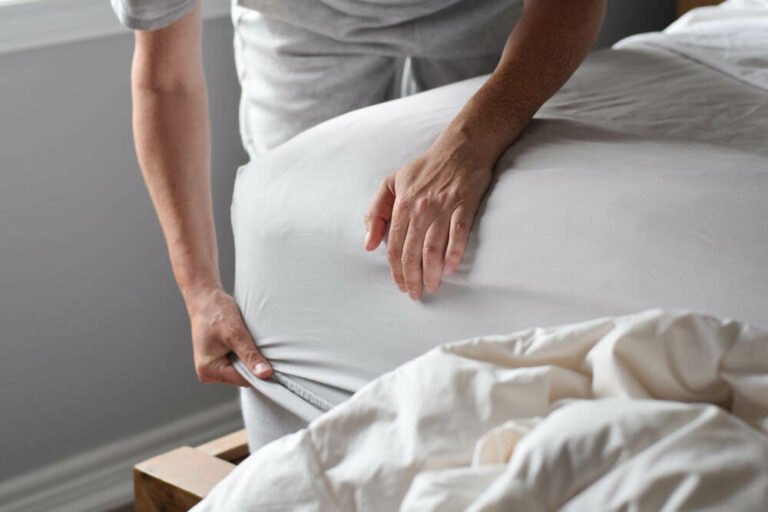Oh no! Stuck again with one of those infamous night shifts? Need to pull an all-nighter for an important exam tomorrow?
Staying up all night is tough, no doubt about it. Shift workers usually bear the brunt the most. Statistics say that only in Australia, more than 200.000 people work regularly in evening and night shifts throughout the course of one year. The Bureau of Labor Statistics in the US has on record that “nearly 15 million Americans work a permanent night shift or regularly rotate in and out of night shifts.” That’s a lot of people that need to regularly exchange a good night’s sleep for an all-nighter.
Whatever the reason is, you will have to stay awake the whole night and then somehow manage to stay healthy and keep your mental health in check. How do you do that? How do you stay up all night, keep your sleep cycle in order, and ward off chronic tiredness and drowsiness? Well, in this article, we’ll show you the best ways you can stay up late without the consequence of an influx of sleep problems afterward. Of course, the best thing is to go to bed at night and wake up in the morning, but unfortunately, that’s not always possible.
How Bad Is Staying Up All Night for Your Health?
Staying up all night is usually considered bad for your health. Sleep is a basic human need and most people usually follow a sleep schedule that starts in the hours of the night and ends in the early morning, meaning from around 11 pm to 7 pm.
Of course, the occasional all-nighter isn’t going to cause any long-term damage to your physical and mental health. But, doing it often can be detrimental to your health.
These are some of the most common consequences of staying up all night for a longer period of time.
Effects on Physical Health
Staying awake the whole night can disrupt your circadian rhythm and wreak havoc on your sleep-wake cycle. The body has its own natural clock, influenced also by external factors, with which it regulates when you go to bed and when you feel the need to wake up. The circadian rhythm can be disturbed by bright lights, sleep deprivation, various sleep disorders, all of which can be exacerbated by staying awake throughout the whole night. So basically, staying up too often may result in sleep disorders, which are sometimes hard to treat.
What’s more, if you’re regularly sleep-deprived, statistically you are more likely to develop chronic diseases such as diabetes and coronary heart disease. You are also at a higher risk of developing obesity.
Effects on Mental Health and Cognition
Poor sleep can meddle with your concentration, make it harder to focus, and negatively affect your mood, making you more irritable and stressed out.
You’ll also feel generally more tired, feeling the effects of drowsiness throughout the whole day, which in turn, will make it even harder to stay awake during the day. Of course, the occasional all-nighter won’t cause any long-term consequences to your brain, cognition, and overall physical health. Sure, you’ll feel the effects of sleepiness the next day, and of course, fatigue, but you’ll be as good as new when you get enough sleep and go to bed and get up at an hour that comes naturally for your body.
But any prolonged period of all-nighters can have more serious effects on your mental health – in fact, it may be one of the factors that lead to depression. It can also affect your immune system and the way your body fights diseases. Also, very important, it can cause sleep disorders such as insomnia, which can turn into a vicious cycle of cause and effect, each disorder getting even more exacerbated by the other.
Basically, if you don’t have to stay up all night, don’t do it. However, people sometimes don’t have that choice – shift workers, for example, don’t have much room for other options.
So only one thing remains, and that’s doing late-night shifts more safely. That’s why next we want to show you some of the best ways you can adjust to night shifts, and how to prepare your body when you need to stay up all night for whatever reason.
How to Balance Out an All-Nighter
Okay, now we’ve come to the part where you try and hack your body into better performance when it just wants to sleep. Sounds impossible, right? Not with these tips and tricks!
Of course, this doesn’t mean that you can do away with sleep entirely. Nothing can replace a good night’s sleep, and you should always strive to maintain a healthy balance of proper hours of sleep (which typically range from 6-8 hours a night).
Take a Nap
Understandably, this can sound a bit counterintuitive at first. I mean, how can naps help you stay awake more?!
Well, turns out they can. Have you ever heard of cat naps or power naps? These are short spells of sleep, which usually last from 15 to 30 minutes.
Power naps can be beneficial when you need to quickly recharge your depleted energy levels. Napping helps your body get back on track surprisingly quickly. They can reduce your stress levels, boost cognitive performance and creativity, and also help you stay more alert and awake during the night.
If you regularly work night shifts, make sure you doze off at the same time to make them more effective. Also, keep them short so you don’t end up with feelings of drowsiness after you wake up. Ideally, try to keep them 15-20 minutes long, although you can go up to 30 if you really need it. Any longer than that and you risk falling into a deep sleep. If you have trouble waking up by yourself, set an alarm.
Power naps can be especially important for drivers that are doing long commutes or have to drive hours on end. Have you heard about drowsy driving? This happens when people are feeling sleepy and yet they still continue driving their vehicles. Drowsy driving can be very dangerous because it can lead to serious accidents. According to statistics from the US Department of Transportation, accidents from drowsy driving usually happen between the hours of midnight and 6 am, and also in the late afternoon.
So next time when you feel sleepiness creeping up and it’s becoming increasingly hard to fight it off – succumb to it. Give yourself a 20-minute break – your body and mind will thank you for it. Also, you’ll be far less likely to be the crankiest person alive the next morning.
Sometimes taking a nap can even be life-saving. Don’t drive when you’re sleepy – stop at a nearby parking space, take a short nap, get some fresh air, and continue on more alert and with a clear head.
Put Some Caffeine in Your System
Okay, but what if you don’t have napping rooms at work? What if you just can’t allow yourself even 10 minutes of shut-eye?
Well, then I present to you her majesty – caffeine!
Caffeine is one of the most popular legal stimulants in the world. Around 166 million coffee bags were consumed globally solely in the years 2020 and 2021. Coffee and caffeinated drinks are known to effectively increase alertness, improve cognitive performance and attention, and boost energy levels.
There are plenty of drinks containing caffeine if you’re not particularly fond of coffee. Energy drinks, like Red Bull, for example, can give you a boost in energy. But don’t rely on them too much or too often, since they may affect your heart and your blood pressure. Plus, they’re often carbonated and have excess sugars or artificial sweeteners, so it can affect your diet and gut health too.
Coffee is generally a healthier choice than energy drinks, but too much coffee can also be detrimental to your sleep habits and your sleep cycle.
In general, try to stick to consuming a maximum of 400 mg of caffeine per day and don’t overdo it during the night. Take smaller doses of coffee so you can avoid side effects such as energy crashes and stomach problems. For example, you can have one or two short espresso shots during your all-nighter. Don’t drink coffee 4-5 hours before your bedtime.
Move Your Body
Even a 30-minute exercise is great for your overall health during the day, but what about the night? Well, as it turns out, if you need to stay awake the whole night, you can also try and move around a little. This is because when you exercise, you put into motion your cardiovascular system, which means your heart rate increases, as does your blood flow. Consequently, you become more alert and more awake, your brain works better, and your mind is much more clear.
Get some fresh air, take a short walk around the neighborhood, your immediate surroundings, or inside the office building. If you have more space you can even do a whole set of aerobic exercises, jumping jacks… whatever works for you!
All of this can help you feel more rejuvenated throughout the night.
Splash Some Cold Water on Your Face
Yeah, cold water is another way you can arouse your cardiovascular system and stay more awake. Take a short trip to the bathroom and splash your face with some cold water a few times.
Alternatively, if you have the appropriate conditions for that, you can even try brushing your teeth to feel more refreshed, or take a cold or lukewarm shower.
Use Your Digital Devices
If, for example, your night shift gives you lots of idle time, you can use your digital device like a smartphone, an iPad, or a tablet and let their blue light keep you awake. Or, if you need to study for an exam, feel free to use your computer. Play a game, read a text you need for the exam, or take notes on your computer or your tablet.
Almost all of the digital devices that we use emit blue light from their screens. And while their use is not ideal before going to bed, as you might have guessed by now, if you want to stay up late or spend the whole night awake they can be pretty helpful. This is because the blue light emitted from these devices actually plays a role in delaying the release of the sleep hormone melatonin in our bodies, and it also affects the sleep cycles, temporarily tricking the body into thinking it’s actually daylight. As a consequence, staring at these screens makes us less sleepy and more alert.
If you can’t use digital devices during your all-nighter, then you can try and keep your room bright. According to a study from the Chicago Northwestern University, the light intensity should be “between 1,200 lux and 10,000 lux for a period of 3-6 hours during the night shift“. If it becomes too much at some point, then turn it on intermittently, preferably at a 20-minute interval each hour of the night.
Get (the Right) Snacks
The right kinds of snacks are going to give you the desired energy boost. So make sure you keep snacks such as granola bars, nuts, and vegetables such as carrots (combined, for example, with a healthy dip like hummus or guacamole, or yogurt). Basically, look for a good mix of carbs, protein, and unsaturated fats.
Sure, sugary or fatty food, candy, or carbonated drinks, can seem very appealing as a nighttime snack, and you might think they’ll give you a shot of energy. However, they’re not only bad for your health, but they also might lead to a very undesired energy crash.
Listen to Loud and Lively Music
If your job allows it, or if it’s easy to study with music, then put on your headphones and play music that you like, but music that is energetic and lively. It can be any kind of music as long as it makes you want to start dancing.
Adjust Your Sleep Schedule
Maybe you’re in that kind of job where you have frequent night shifts, or you almost exclusively work at night. In that case, if you need to stay up late for a prolonged period of time, it’s best to adjust your sleep schedule accordingly. For instance, if you work during the night, make sure you get enough sleep in the morning and during the day, with the curtains drawn, as that makes falling asleep and staying asleep easier. That way you can also sleep better once you do go to bed, and you’ll better manage to stay awake during the night.
So, try to make unique changes that work best for you in your sleep schedule and sleep habits. For example, it’s better to stick to a fixed night schedule than to constantly have to change between night and day shifts in between every week or so. That’s because as soon as your body starts to get used to the current shift, you’ll be introducing another one, messing with your circadian rhythm yet again.
If you can, talk to your boss or supervisor about your shifts and try to come up with one that will balance the requirements for the job and the well-being of the employees.
Conclusion
It’s important to stress that nothing replaces a good night’s sleep. The body needs its shut-eye period and it usually needs it at a particular time of the night. But our lives sometimes interfere with this and we need to make some adjustments.
If you need to stay awake for a long period of time, make sure to seek medical advice at some point, especially if you have trouble falling asleep after your shift ends. A medical professional will be able to help you figure out how you can develop and maintain better sleep habits in order to sleep better.
If nothing else works and you keep having sleep problems, they might even prescribe you some kind of sleep medicine.
After the all-nighter is done, prioritize your rest. You don’t need to sleep for 8 or 10 hours at once, even if you’re too tired. In fact, it’s better to sleep in shorter intervals of 2-3 hours, so you can better adjust your body to its usual sleep cycle.






